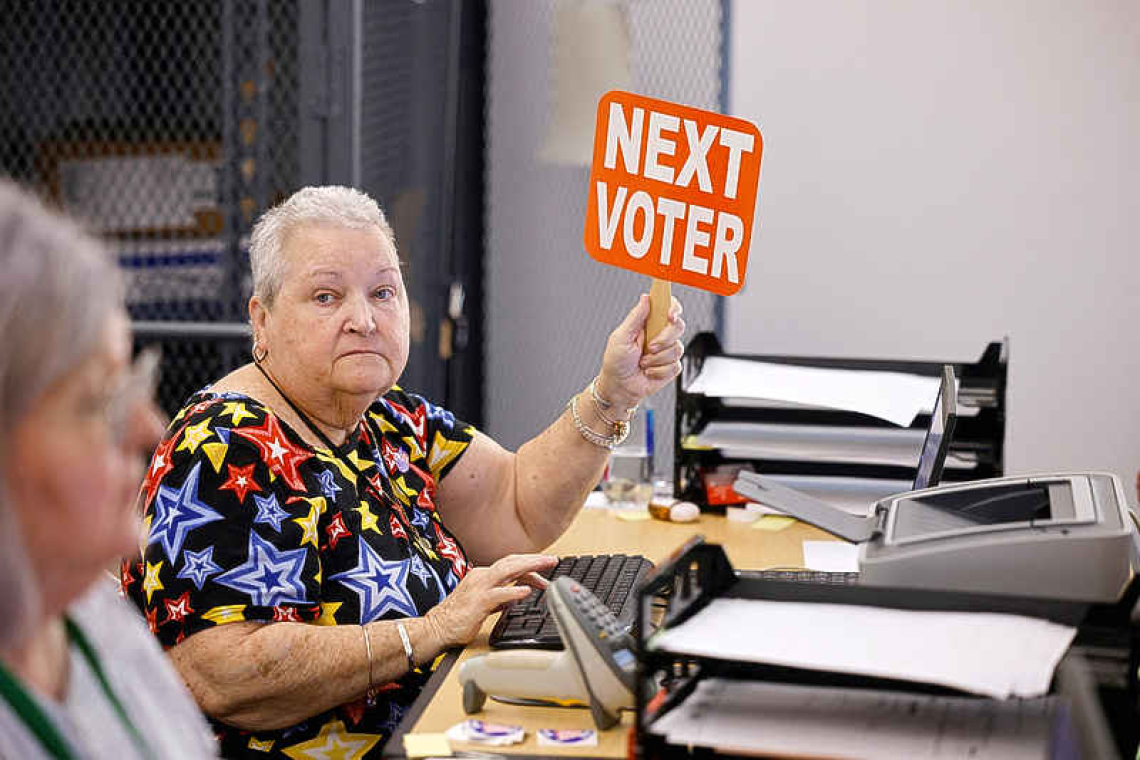WASHINGTON--The U.S. Supreme Court on Tuesday rebuffed a legal theory favored by many conservatives that could hand sweeping power to state legislatures to establish rules for presidential and congressional elections and draft electoral maps giving huge advantages to the party already in control. The justices, in a 6-3 decision authored by conservative Chief Justice John Roberts, ruled against Republican state legislators in a case arising from a legal fight over their map of North Carolina's 14 U.S. House of Representatives districts. The state's top court last year blocked the map as unlawfully biased against Democratic voters.
The legislators had asked the justices to embrace a once-marginal legal theory, called the "independent state legislature" doctrine, that would remove any role of state courts and state constitutions in regulating federal elections. Critics of the doctrine, including many legal scholars, Democrats and liberal voting rights advocates, have called it a threat to American democratic norms. The doctrine is based in part on the U.S. Constitution's statement that the "times, places and manner" of federal elections "shall be prescribed in each state by the legislature thereof." "The Elections Clause does not insulate state legislatures from the ordinary exercise of state judicial review," Roberts wrote of that constitutional provision. The ruling still puts the Supreme Court or other federal courts in a position to second-guess state courts in certain types of election-related cases. Roberts was joined by fellow conservative Justices Brett Kavanaugh and Amy Coney Barrett as well as the court's three liberal members. Conservative Justices Clarence Thomas, Samuel Alito and Neil Gorsuch dissented, saying the case should have been dismissed.
Manipulating electoral district boundaries to marginalize certain voters and increase the influence of others is called gerrymandering. Critics of the doctrine have said its application would let legislatures easily pass further voting restrictions or pursue extreme partisan gerrymandering. The Supreme Court in 2019 barred federal judges from curbing partisan gerrymandering. The doctrine has gained ground among some Republican politicians, who have passed laws and restrictions in numerous states they have said are aimed at combating voter fraud. These efforts accelerated following Republican former President Donald Trump's false claims that the 2020 election was stolen from him through widespread voting fraud. Abha Khanna, an attorney for some of the map's challengers, hailed Tuesday's ruling as a "resounding victory for free and fair elections in the United States." North Carolina Governor Roy Cooper, a Democrat, said, "This is a good decision that curbs some of the power of Republican state legislatures and the ruling affirms the importance of checks and balances. But Republican legislators in North Carolina and across the country remain a very real threat to democracy as they continue to pass laws to manipulate elections for partisan gain by interfering with the freedom to vote."
Roberts, while rejecting the legislators' main arguments, cautioned that "state courts do not have free rein" to undermine power that the U.S. Constitution gives state legislatures to craft election rules. Roberts stopped short of announcing a legal test for determining when a state court has ventured too far, but that conclusion could still give politicians another chance to defend contested rules or maps.







